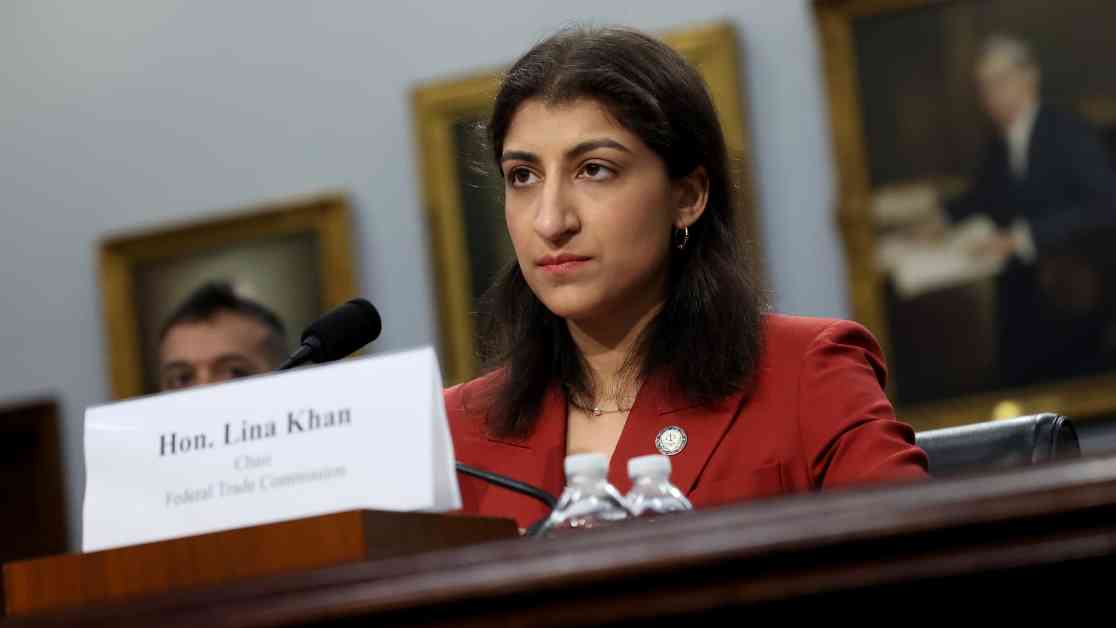The Federal Trade Commission (FTC) has taken legal action against three major U.S. health companies that negotiate insulin prices, alleging that they engage in practices that increase their profits at the expense of patients. The lawsuit targets the largest pharmacy benefit managers (PBMs) in the country, including UnitedHealth Group’s Optum Rx, CVS Health’s Caremark, and Cigna’s Express Scripts. These companies collectively oversee around 80% of the nation’s prescriptions, according to the FTC.
In addition to the PBMs, the FTC’s lawsuit also includes affiliated group purchasing organizations that facilitate drug purchases for hospitals and other healthcare providers. The agency has not ruled out the possibility of suing insulin manufacturers Eli Lilly, Sanofi, and Novo Nordisk in the future for their role in driving up list prices for insulin products.
PBMs play a crucial role in the U.S. drug supply chain by negotiating rebates with drug manufacturers on behalf of insurers, employers, and federal health plans. They also create formularies, which are lists of medications covered by insurance, and reimburse pharmacies for prescriptions. The FTC has been investigating PBMs since 2022.
The agency’s lawsuit argues that the three PBMs have established a rebate system that prioritizes high rebates from drugmakers, leading to artificially inflated insulin prices. It alleges that the PBMs favor high-list-price insulins even when more affordable options are available. The FTC is pursuing its complaint through an administrative process that will involve an administrative judge hearing the case.
Rahul Rao, deputy director of the FTC’s Bureau of Competition, emphasized the impact of high insulin prices on millions of Americans with diabetes. He stated, “Millions of Americans with diabetes need insulin to survive, yet for many of these vulnerable patients, their insulin drug costs have skyrocketed over the past decade thanks in part to powerful PBMs and their greed.” The FTC aims to address the exploitative conduct of the top three PBMs and promote healthy competition in the drug market to lower prices for consumers.
According to the FTC, roughly 8 million Americans with diabetes rely on insulin to survive, and many have been forced to ration their treatment due to high prices. President Joe Biden’s Inflation Reduction Act has capped insulin prices at $35 per month for Medicare beneficiaries, but this policy does not currently extend to patients with private insurance.
The Biden administration and Congress have been increasing pressure on PBMs to enhance transparency in their operations as many Americans struggle to afford prescription drugs. Americans pay significantly more for prescription drugs than patients in other developed nations, according to a fact sheet from the White House.
FTC’s Concerns with Insulin Manufacturers
The FTC has expressed concerns about the role of insulin manufacturers in contributing to higher list prices. The agency argues that manufacturers inflate prices in response to PBMs’ demands for higher rebates. Eli Lilly, Sanofi, and Novo Nordisk dominate the U.S. insulin market, controlling approximately 90% of the market share.
For example, Eli Lilly’s Humalog insulin saw a list price increase from $21 in 1999 to $274 in 2017, marking a more than 1,200% rise. The FTC has put all insulin manufacturers on notice, warning them that their participation in such conduct raises serious concerns.
In response to the FTC’s lawsuit, Eli Lilly, Sanofi, and Novo Nordisk have taken steps to address insulin affordability. Eli Lilly became the first company to cap out-of-pocket costs for all its insulins at $35 per month for people with private insurance. The company also reduced list prices for some insulins by up to 70%.
Sanofi and Novo Nordisk followed suit by implementing $35 monthly price caps for their commonly prescribed insulins. They also slashed list prices for certain insulin products by up to 75%. However, both companies have yet to respond to requests for comment on the FTC’s lawsuit.
The FTC’s actions against insulin manufacturers and PBMs reflect broader efforts to reform the U.S. healthcare system and make prescription drugs more affordable for all Americans. By targeting key players in the insulin market, the agency aims to promote competition and drive down prices for consumers in need of life-saving medications.






















